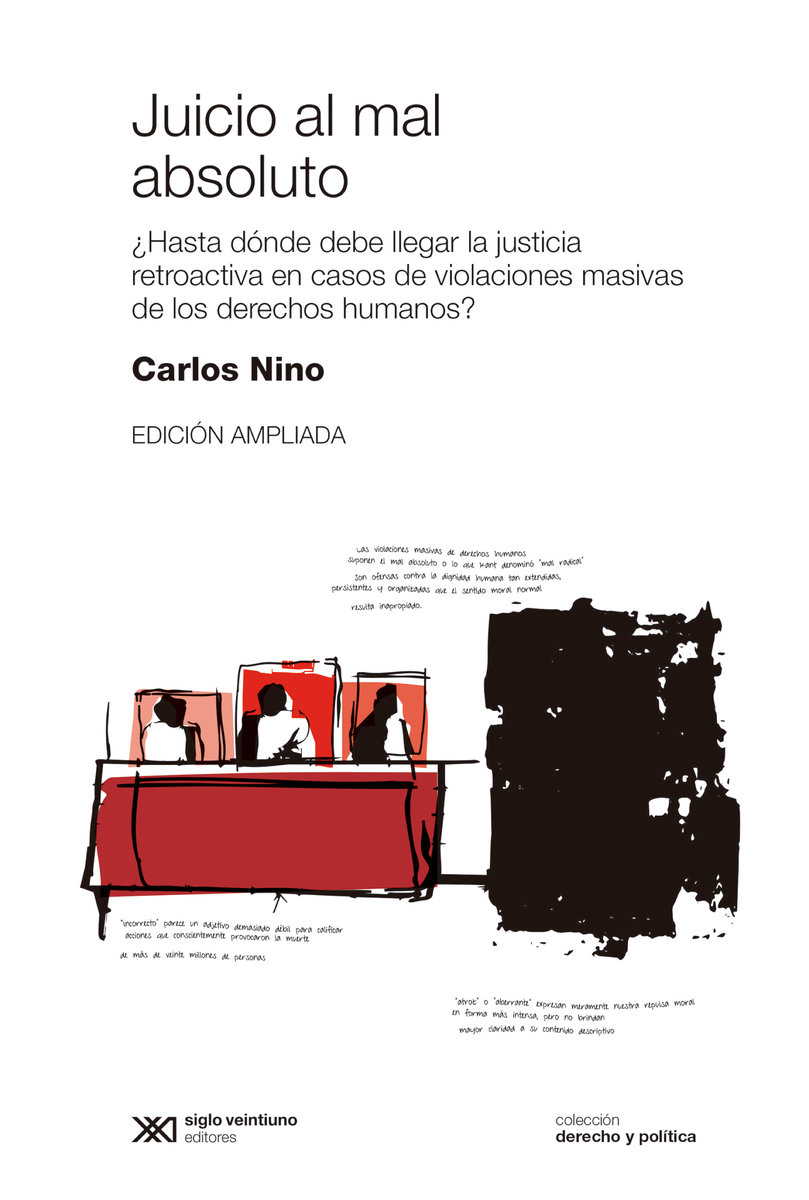Carlos Nino fue una figura clave en el enjuiciamiento a los máximos responsables de las violaciones a los derechos humanos cometidas por la dictadura militar, entre 1976 y 1983. Contribuyó decisivamente en el diseño del Juicio a las Juntas, que representa un hecho histórico único: conocemos experiencias de amnistías y perdones, operaciones por el olvido y por la memoria, y sucesos de venganza y resignación, pero casi no existen instancias en las que primaran la justicia y el derecho.Juicio al mal absoluto, escrito a comienzos de los años noventa, cuando el gobierno de Raúl Alfonsín había concluido y era posible una reflexión más distanciada, es un auténtico clásico que aún tiene mucho para decir sobre los alcances de la justicia retroactiva y sus aristas morales, políticas y estrictamente jurídicas. Así, luego de trazar un panorama de los intentos de tratar el mal radical durante el siglo XX (desde los juicios de Nuremberg tras la Segunda Guerra Mundial hasta la situación en Europa oriental después del colapso de los regímenes comunistas), Nino se concentra en el caso argentino, evaluando los éxitos y fracasos de la política llevada a cabo por el gobierno de Alfonsín. Y desmenuza los varios dilemas que entraña la justicia retroactiva: ¿cómo entender la responsabilidad de quienes planearon los hechos y quienes los ejecutaron, de quienes prestaron recursos materiales o quienes cooperaron por omisión? ¿Una excesiva preocupación por el pasado puede debilitar el proceso de democratización o, por el contrario, fortalecer sus valores? ¿Cuál es el rol de los tribunales internacionales?En esta nueva edición se agregan textos fundamentales de Nino, en los que analiza con mirada crítica los indultos dispuestos por el gobierno de Carlos Menem y el modo en que las organizaciones de derechos humanos concibieron el castigo por los actos del terrorismo de Estado.


